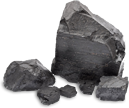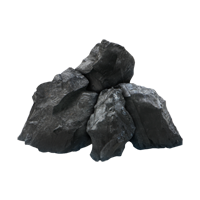Our Mining Family Was Thankful for Many Things

A mining and family history was submitted to Miners’ Memorial by daughter Ruth Haslam Butler. Betty Butler, Ruth’s daughter-in-law, helped put the information together in story form which has been excerpted below.
Samuel Haslam was the fourth of six children born to John and Elizabeth Haslam on July 30, 1878 in Dronfield, Sheffield, England. Sam quit school in the sixth grade to work in the coal mines with his father to help support the family.
After Sam’s mother died in 1897, he decided to travel to America to see the country and make some money. He planned to return to England after his adventure. It was easy for a young man to find work in America. Sam worked in Chicago for awhile as a bricklayer’s assistant. He moved to San Francisco and then to Colorado where he met his future wife, Ivah Pearl Leatherman. Ivah was from Stafford County in western Kansas. Ivah had traveled by stagecoach to Colorado to be with her sister Goldie Faulk. Goldie and her husband Ed were expecting their second child.
Ivah’s father, Wesley, was a wheat farmer who owned two sections of land. He died when Ivah was fourteen years old. She was the sixth of eleven children.
Sam wrote to Ivah’s mother to ask permission to marry Ivah. She gave her consent. Sam and Ivah went to St. John, Kansas, to meet the family and were married on April 25, 1911. Ivah was eighteen years old, Sam was thirty-three. They moved back to Cokesdale, Colorado where their first child, Elizabeth, was born.
Eventually, the small family decided to try “homesteading” in western Kansas. Land was free to homesteaders if they staked their claim, lived on the land and developed it for five years. They built a dug-out home with a dirt floor, one door and one window. Charlotte Mae was born in that home but she died only eight hours after birth. Homesteading was a difficult life.
Sam heard of coal mines in southeast Kansas, so they moved to Arma where he began working in what may have been Mine No. 9, north of town. They bought two homes and lived in the third house west of the high school on the south side. Frank Edwin was born in 1914 and Ruth Lillie was born in 1916. We were the first boy and girl born in the northeast section of Arma.
Papa sold the two houses and bought seven acres in the southern part of Arma, east of the street car track that ran between Pittsburg and Ft. Scott. My brother, John James was born in 1918 and Samuel Wesley was born in 1919.
Papa provided for his growing family by continuing to work in the coal mines just south of Arma. He also had a big garden, a cow, pigs, chickens and a field for grain. All the kids helped in the garden and with the farming. We had a horse-drawn buggy that the whole family rode in to church every week.
In 1925, Papa purchased an eighty-seven acre farm five miles east of Sheldon, Missouri in Vernon County. He sold several properties to purchase this farm and another one in Bourbon County. He was promised a loan of $1,000 from the purchasers, Home Builders Association. He was going to use the money to start farming and coal mining on the property. The association went bankrupt shortly after that. Papa never saw any of the money.
Several places had been dug into the side of a big hill on the farm. Papa thought that it would be a good way for the boys to learn how to mine coal. He made use of the best of the slope mines. He hired two young men who were brothers to help with the mine. Mr. Zehring, another farmer, was hired to do the planting. All five children were put to work in whatever area they were needed. Papa bought a team of mules and a wagon with a spring seat. When we used it for family transportation, Papa would put boards across the sides of the bed of the wagon to make a seat. In the winter we put straw in the wagon bed for warmth and used blankets to keep warm.
When they had mined enough coal to sell, they would take two wagon loads to Nevada, Missouri. It was an all day trip. Mama drove one wagon and Mr. Zehring drove the other one. We packed a lunch to eat on the way.
The vein of coal on our place was about two feet deep. In the summers, John and Frank helped Papa in the cool mine. Samuel and I pulled weeds and worked in the garden or the field. Pearle helped Mr. Zehring cultivate, plow and plant. I hated to work in the sun and complained to Papa about the unfairness of my situation. He allowed me to trade places with Frank and John. I put on the boys pit clothes and cap with a carbide lamp and went down to work in the mine. My job was to pick up and remove the rocks away from the tracks and to clear out the drainage ditches beside the tracks so the water would run out of the mine.
It was pitch dark and very cold inside the mine. I worked all alone. I did this for two days and I was ready to give my brothers back their job. In the afternoon after work, we were free to play.
The rooms in the mine were very low, too short to stand up. The track tunnels were not very tall either. The men had to work on their knees most of the day. Their pit pants had knee pads. There wasn’t enough room for mules in this slope mine. The men would drill holes in the rock above the vein of coal and another hole in the coal then put powder in each hole. Papa didn’t have a shot fireman so he did that job himself. This blast broke up the rocks and coal for removal. After the blast, the men would shore up the walls and ceiling with boards and poles to keep the rock ceiling from collapsing.
After a year and a half of hard work, the mine and farm were still not productive. We gave up and moved back to Arma. One of the houses Papa sold to the Home Builders Association had unpaid taxes. It was still in Papa’s name, so he paid the taxes and we moved in Thanksgiving weekend in 1927. Papa went to work again in one of the mines in Arma.
Papa wasn’t well; he lost fifty pounds and was hemorrhaging. The strain of the previous two years from losing everything had affected his colon. He wasn’t working much in the mines by the summer of 1928, but he did put in a nice garden. Several doctors, including our family doctor, Dr. Tinder from Girard, told him that he was in the last stages of massive cancer of the lower bowels. They gave him three to six months to live. He was fifty years old. Mama was only twenty-eight years old. She earned as much money as she could and all the children helped in whatever way they could. God supplied our needs so we never went hungry.
We attended church every Sunday, but Papa was so weak he would have to stop to sit on the steps of houses all the way to rest. We could hear the Baptist church people praying for Papa. We were all praying. It all seemed hopeless. After about a year, the hemorrhaging began to subside, he began to gain weight as his body seemed to be processing food normally. His healing was slow, but he lived healthy and strong for a long time after that.
After he regained his health he began working in the mine near the Girard corner. The mines were closing and people were selling their homes. Papa sold our home in Arma. Papa and Mama moved to Pittsburg in 1941 or 42.
The men had to work a specific number of years to qualify for a mining pension. In 1948, Papa and a few other men reopened a dinky mine in Mulberry, Kansas. The necessary paper work had been taken to the miners’ union in Pittsburg and turned in before the deadline. However, the union leaders failed to turn the papers in on time causing all these men to lose their pension. Papa was very disappointed because he had supported the union all the years he worked in the mines.
Papa died of lung cancer (black lung from the coal dust) at the age of eighty-eight.
